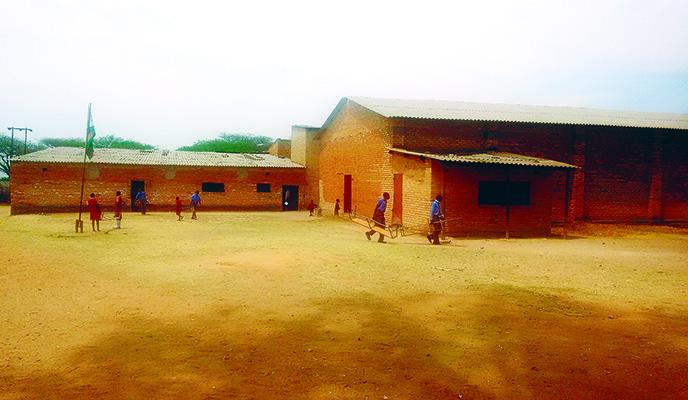News / Local
Zimbabwe pupils learning in tobacco barns and fowl runs
01 Jul 2025 at 11:37hrs |
7 Views

A joint parliamentary committee has raised the alarm over the deplorable state of school infrastructure across Zimbabwe, revealing that some pupils are attending lessons in disused tobacco barns, fowl runs, and open spaces due to a chronic shortage of classrooms.
This grim picture was painted in a report tabled by the Portfolio Committee on Primary and Secondary Education and the Thematic Committee on Gender and Development, following a nationwide assessment of access to basic education.
The joint committee said the conditions in many schools are not conducive to learning and pose serious risks to the quality of education.
"The Joint Committee was informed that at Herbert Chitepo Primary School in Zvimba District, which has an enrolment of over 1,000 pupils, abandoned tobacco grading sheds are being used as classrooms. Similarly, Early Childhood Development (ECD) classes at Tore Primary School are conducted in a fowl run, while some classes at Chimedza Primary School are held in open spaces," the report stated.
The committee also highlighted the severe shortage of classroom infrastructure, especially in rural areas, and raised concerns about widespread overcrowding in schools. Many institutions were found to exceed the standard teacher-pupil ratio of 1:40, leaving teachers overburdened and unable to provide adequate attention to individual students.
"In response to overcrowding, some urban schools have introduced a hot-sitting arrangement, where students attend classes in shifts — morning and afternoon. However, this negatively affects learners with disabilities, who often struggle to cope with the irregular schedules," the committee noted.
In Gwanda District, legislators observed an acute shortage of both schools and teaching staff. Rural learners are bearing the brunt of the crisis, with many walking more than 13 kilometers one way to attend school — a situation described as deeply troubling.
"At Dabengwa Primary School in Bubi, for example, some pupils travel as far as 16 kilometers one way. These long distances lead to learner fatigue, which affects concentration and academic performance," the report added.
Teachers, learners, and parents across the country told the committee that the long commutes and inadequate facilities are undermining efforts to improve academic outcomes, as time for homework and revision is significantly reduced.
The joint committee urged the government to urgently prioritise investment in educational infrastructure, particularly in rural areas, to ensure that every child has access to quality learning environments.
This grim picture was painted in a report tabled by the Portfolio Committee on Primary and Secondary Education and the Thematic Committee on Gender and Development, following a nationwide assessment of access to basic education.
The joint committee said the conditions in many schools are not conducive to learning and pose serious risks to the quality of education.
"The Joint Committee was informed that at Herbert Chitepo Primary School in Zvimba District, which has an enrolment of over 1,000 pupils, abandoned tobacco grading sheds are being used as classrooms. Similarly, Early Childhood Development (ECD) classes at Tore Primary School are conducted in a fowl run, while some classes at Chimedza Primary School are held in open spaces," the report stated.
The committee also highlighted the severe shortage of classroom infrastructure, especially in rural areas, and raised concerns about widespread overcrowding in schools. Many institutions were found to exceed the standard teacher-pupil ratio of 1:40, leaving teachers overburdened and unable to provide adequate attention to individual students.
In Gwanda District, legislators observed an acute shortage of both schools and teaching staff. Rural learners are bearing the brunt of the crisis, with many walking more than 13 kilometers one way to attend school — a situation described as deeply troubling.
"At Dabengwa Primary School in Bubi, for example, some pupils travel as far as 16 kilometers one way. These long distances lead to learner fatigue, which affects concentration and academic performance," the report added.
Teachers, learners, and parents across the country told the committee that the long commutes and inadequate facilities are undermining efforts to improve academic outcomes, as time for homework and revision is significantly reduced.
The joint committee urged the government to urgently prioritise investment in educational infrastructure, particularly in rural areas, to ensure that every child has access to quality learning environments.
Source - Zimlive
Join the discussion
Loading comments…

































